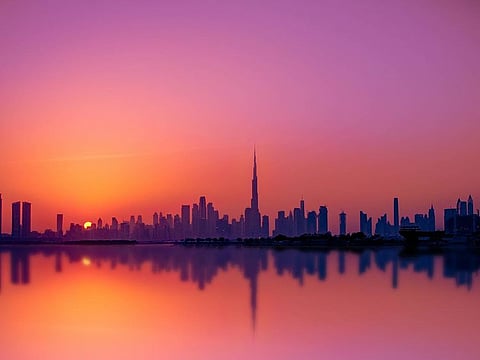Dubai's hotels will need a new strategy after Expo's 6-month occupancy highs
Expo set up consistently high occupancy for Dubai hotels - what's next?

Dubai: With less than two weeks to go for the EXPO 2020 to draws to a close, hotels operators in Dubai are working overtime in planning for what next. Their priority is clear – ensure a smooth landing from the consistently high 75-85 per cent occupancy levels that the hotel sector was hitting through the better part of the six-month Expo run.
Even the Omicron phase from December was more a distraction for the hotel sector rather than a disruption. Now, all depends on how well the post-Expo phase can be managed. Based on early evidence, “Changes in the booking patterns for April are not significant as yet,” said Niall McLoughlin, Senior Vice-President at Damac, which operates a portfolio of hotels in the city, both managed by it and those with other operators.
We may have to wait-and-watch for how the Ukrainian crisis is going to unfold to be able to see any apparent impact on our bookings.

The Expo bookings and visitor arrivals from elsewhere have shielded local hotels from the three-week old conflict in Ukraine. According to McLoughlin, hotels should not get fixated by the conflict and what this would mean for lost traffic from Russia and Ukraine.
“To absorb any fallouts from the crisis, it is essential to be prepared to maneuver the operations to other key (source) markets that are faring well and where we see more demand,” he said. “As in the case with most crises, hotel operators must be prepared with alternative plans to keep up occupancy and RevPar (revenue per available room).
“We are closely monitoring the crisis, and are equipped with contingency plans in case of any such need. With Ramadan in April this year, we will have promotions running through the holy month. [And] soon after will be the off-peak season where we will then focus on our summer deals.”
This year, with the Spring break in the UAE and Saudi Arabia being aligned, we expect a peak in demand in the UAE towards the end of March. The occupancies are expected to range from 75% to over 80% across Dubai, Abu Dhabi and Fujairah

Ease through April
According to Haitham Mattar, Managing Director for India, Middle East & Africa at IHG, "We are expecting a modest demand during Ramadan with average occupancy around 60 per cent. However, the demand is expected to pick up once again during the Eid break, especially in popular family staycation spots such as Fujairah and Ras Al Khaimah. We have two best-in-class, luxury resorts – InterContinental Fujairah and the newly opened InterContinental Ras Al Khaimah - and are ready to cater to the demand during the Spring and Eid break.”
Eid bonanza - with help from staycations
Hotel industry sources say that the week of Eid will again prove an occupancy generator. They are betting on a good number of UAE residents preferring staycations this year too for Eid rather than travel when airline ticket rates are likely to feel the pressure of oil at $100 a barrel levels.
“We can make up for some of the April losses if we are able to mobilize domestic tourists,” said Praveen Shetty, Chairman and Managing Director of Fortune Group, which operates four-star properties in Dubai. “In the last 2 years, the concept of staycation has caught up in Dubai. We have come up with promotions for Indian tourists and staycation packages for UAE residents to keep occupancy levels up during the summer season.
“If the Ukraine conflict prolongs further into April, we don’t expect that Russian and Ukrainian holidaymakers will come this summer. Also, problems could arise due to the exclusion of Russia’s seven major banks from the SWIFT (payments) system and the heavy financial sanctions placed on Russia.”
Sign up for the Daily Briefing
Get the latest news and updates straight to your inbox



